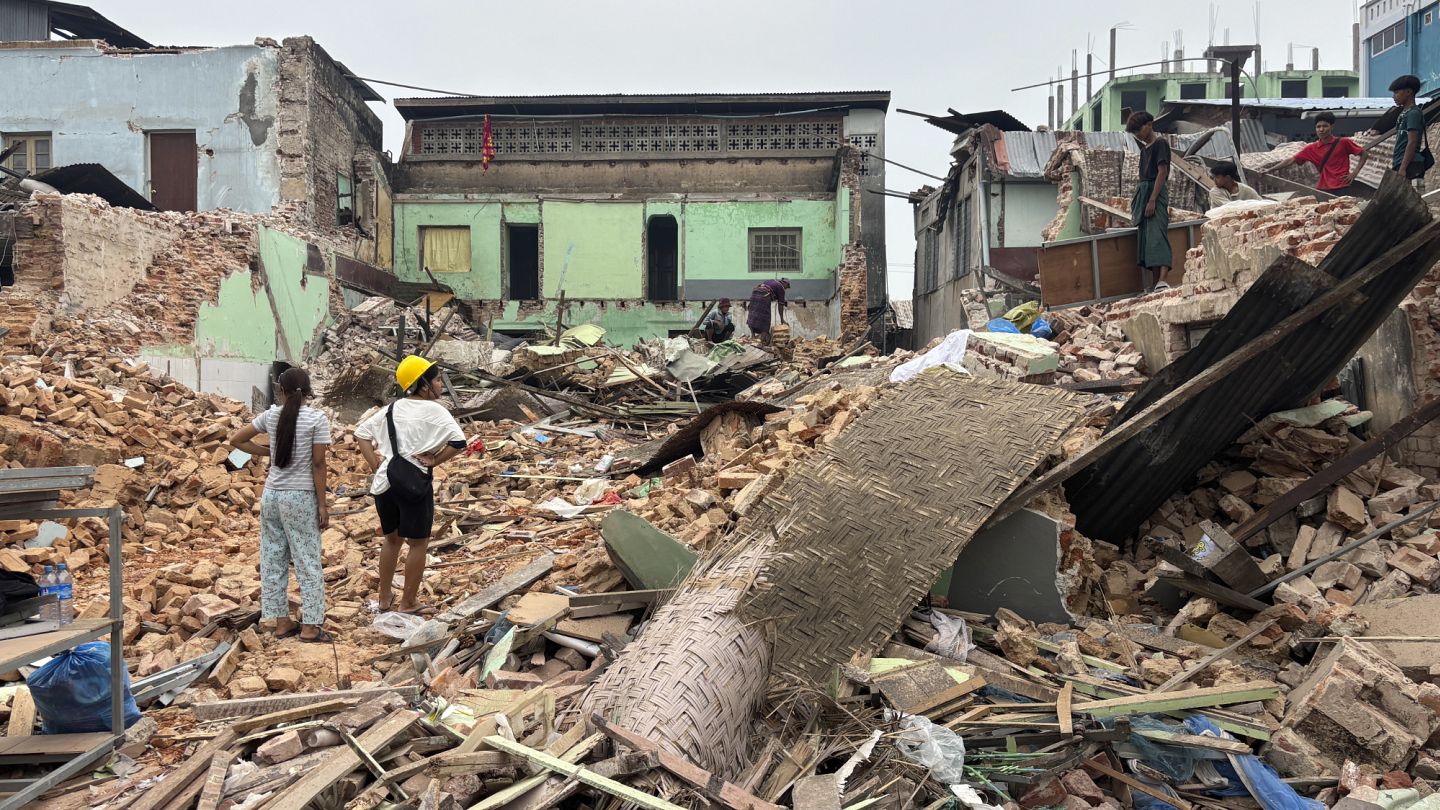The number of people who died in the earthquake in Myanmar has exceeded 3,500.
Aid groups report that recent heavy rains have increased the risk of the spread of waterborne diseases such as cholera.
As the death toll from last month's devastating earthquake in Myanmar surpasses 3,500, the chances of finding survivors are dwindling. A statement from Myanmar’s fire department on Monday indicated that rescue teams from India, Malaysia, and Singapore have completed their operations and returned to their countries. It was reported that ten bodies were recovered from the rubble of a collapsed building in Mandalay, which is located near the epicenter of the 7.7 magnitude earthquake that struck the country on March 28. State media reported on Monday that at least 3,564 people have died in the disaster, more than 5,000 have been injured, and over 200 people are still missing. Heavy rains and winds disrupted rescue and relief efforts over the weekend, further increasing the hardships for those who have lost their homes. Experts predict that more storms may occur in some regions of the country this week. The civil society organization Save the Children warned on Monday that rainy weather increases the risk of waterborne diseases such as diarrhea and cholera. Jeremy Stoner, the organization’s Asia Regional Director, stated, “The situation is currently very dire for children and families. After being forced to flee their shattered homes, they are now facing early seasonal rains on top of the relentless heat.” He added, “There is a hygiene problem due to the lack of clean water, which could lead to epidemics. We are concerned about the rising number of children falling ill with diseases such as diarrhea, as is often seen in the aftermath of such large-scale crises.” The earthquake has exacerbated the problems Myanmar has already faced since the outbreak of civil war following the military’s seizure of power from the democratically elected government in 2021. Although the military administration and its opponents have declared a ceasefire to allow aid to reach affected communities, both sides accuse each other of violating the temporary truce. UN High Commissioner for Human Rights Volker Türk, speaking on Friday, called for “an end to all military operations and a focus on providing assistance to those affected by the earthquake, as well as ensuring unhindered access for humanitarian organizations ready to provide support.”


